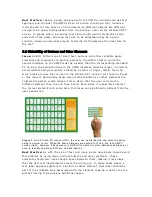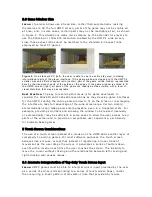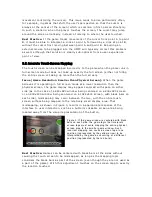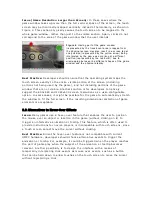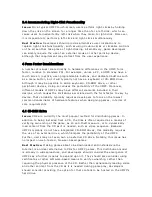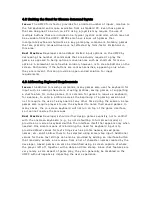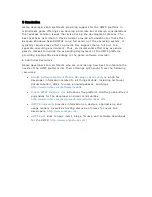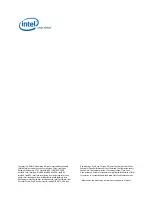
movement controlling the cursor). This issue tends to arise particularly often,
for example, in games that shift the user's perspective so that the cursor is
always at the center of the screen (which is common in first-person shooters).
In such a scenario, when the player touches the screen, the cursor may jump
around the screen erratically, instead of moving to where the user touched.
Best Practice: If the game tracks movement of the cursor from point A to point
B, it must be able to interpret a click at point A, followed by a click at point B,
without the cursor first moving between point A and point B. Requiring an
external mouse to be plugged into the UMPC will typically correct this problem
as well, although that solution is clearly sub-optimal from a user-experience
point of view.
3.2 Accurate Touch-Screen Mapping
The touch screen can be mapped incorrectly to the game when the game runs in
full-screen mode but does not take up exactly the full screen (either not filling
the entire screen or taking up more than the full screen).
Issue (Game Resolution Smaller than Physical Screen): When the game
believes it is operating in full screen mode at a lower resolution than the
physical screen, the game display may appear centered with space on either
side (as in the case of a 640x480 window being centered on a 800x480 screen
or an 800x600 window being centered on a 1024x600 screen, with black bars on
each side), mismapping may occur between the two, with the entire touch-
screen surface being mapped to the relatively small display area. That
mismapping, as shown in Figure 3, results in inappropriate response of the
interface to user interaction, such as a button's clickable screen area being
located away from the visual representation of the button.
Figure 3. If the game window is centered with black
bars on each side, the game logic that interprets
screen taps must avoid mapping the entire physical
screen area to the smaller game window. Such
incorrect mapping can cause a screen tap at one
position (represented by the yellow arrow) to be
interpreted by the game as occurring at a different
position (represented by the red burst).
Best Practice: Games can be centered with black bars at the sides without
causing the touch screen to be mismapped, as long as the mapping logic
considers the black bars as part of the screen (even though they are not used as
a part of the game). With this adjustment, touches on the screen map to exactly
the location touched.



